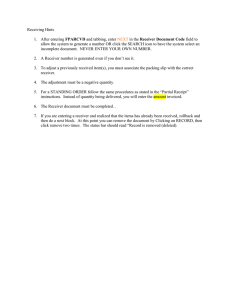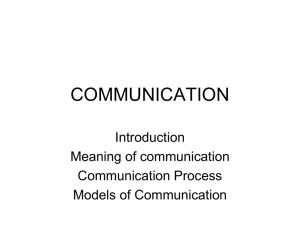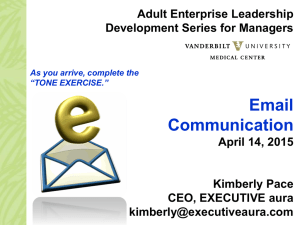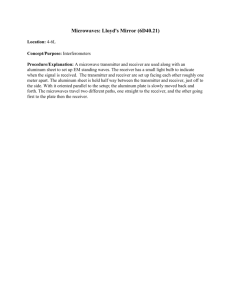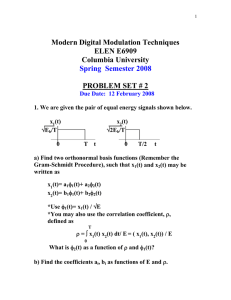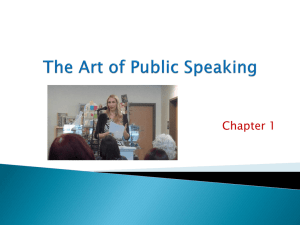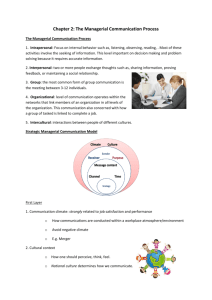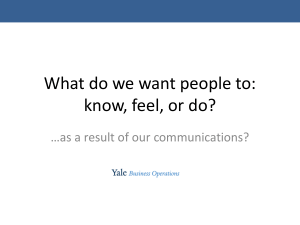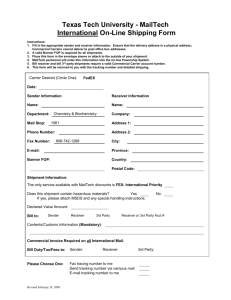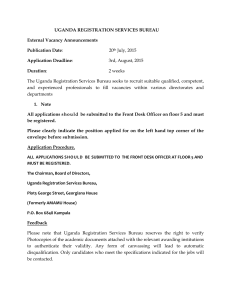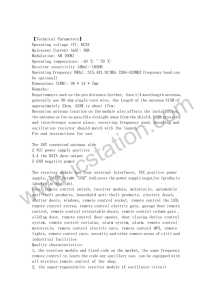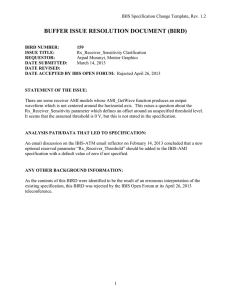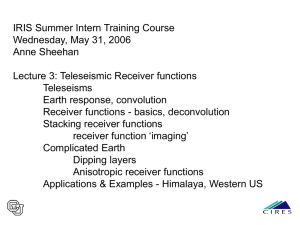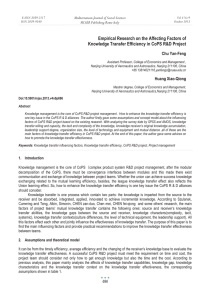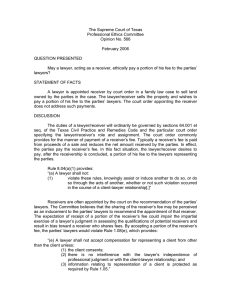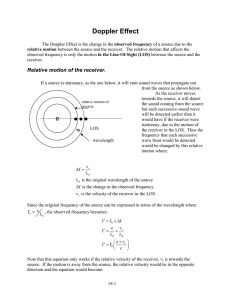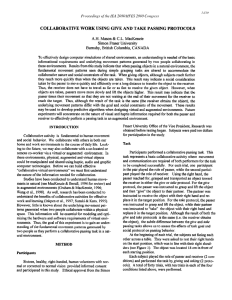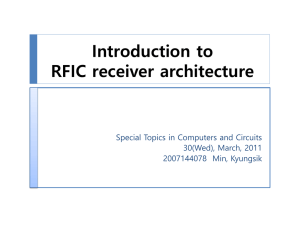Giving & Receiving Feedback
advertisement
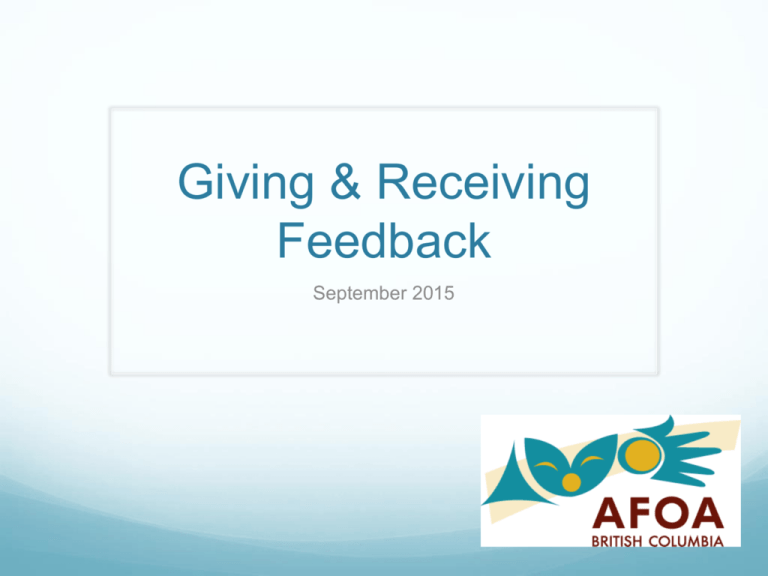
Giving & Receiving Feedback September 2015 Workshop Overview 1. Defining Feedback (& the role of feedback in the working environment) 2. Understanding Communication Styles 3. Giving & Receiving Effective Feedback 4. Difficult Conversations 5. Case Studies 6. Toolkit Defining Feedback What is feedback? How can feedback help build positive relationships in the workplace? How can feedback hinder the building of positive relationships in the workplace? Words of Wisdom… We all need people who give us feedback. That’s how we improve. Bill Gates Understanding Communication Styles If you are giving the feedback you need to consider how the receiver best receives feedback. You also need to be consider your body language. Will you be able to read the receiver’s body language? It may be important to follow up with an email summarizing your discussion. What does it feel like when… Your manager sends you an email advising you need to meet this afternoon to discuss your absenteeism? You receive constructive feedback? You are nagged? You are sent an email with specific feedback on what you are doing well on and what you could improve upon? The feedback provider has no confidence? You have to provide feedback to a staff member on a job well done? Or a job done poorly? Helpful Hints What’s In it for me? WIIFM The 50 / 50 Rule 50 / 50 Guidelines Set your intention/s (self) Prepare for the best outcome (self) Be clear about expectations and roles (self) Describe the challenge (self then seek confirmation from receiver) Describe your 50% of the solution (be specific) Ask for input for their 50% of the solution (receiver) Identify how you will both know if you have achieved the desired outcome (together). 50 / 50 Case Study A Council member becomes frustrated with administrative support person and tells them they keep screwing up meeting minutes. Intention Desired Outcome Expectations & Roles 50 / 50 How will know we achieved desired outcome? 50 / 50 Guidelines Set your intention/s (self) Prepare for the best outcome (self) Be clear about expectations and roles (self) Describe the challenge (self then seek confirmation) Describe your 50% Ask for input for their 50% Identify how you will both know if you have achieved the desired outcome (together) Criteria for Effective Feedback 1. Feedback provider is credible in the eyes of the feedback receiver. 2. Feedback provider is trusted by the feedback receiver. 3. Feedback is conveyed with good intentions and is sincere. 4. Timing is appropriate. 5. Feedback is clear & helpful. 6. There is opportunity for meaningful dialogue. Helpful Feedback is Specific What happened? Where and when did it occur? Who was involved? How did it affect others and the organization? How can we move forward? Hindering Feedback Vague Aggressive, confrontational One way Insincere Rushed Conversations…Setting the Table • You set a time and stick to it • There is order • You have everything you need ready (even within reach) • You serve food when it is hot, presentation is important • There are appropriate breaks / rest, water in between eating • Time to digest The Sandwich Technique Add your own drawing here: Top Layer = Positive Feedback, something they are doing well. Middle Layer = An area they need to improve on – be specific Bottom Layer = wrap up with positive feedback and concrete steps for moving forward Case Studies Your manager just chewed you out in the staff room in front of your peers. A team member has been late 5 times in the past two weeks and is delaying work on a deliverable that you both share. A colleague regularly makes several mistakes on their time sheets that you have to process. You witnessed a board member make an offensive joke in the lunch room. Toolkit 7 Tips for Giving & Receiving Feedback http://orangewhistle.com/7-quick-hacks-to-give-receivefeedback-like-a-winner/ Fierce Conversations – Susan Scott https://www.kenblanchard.com/getattachment/Solutions /By-Offering/Skill-Training-Modules/GivingFeedback/Giving-Feedback-PW-Look-Inside.pdf Toolkit http://www.hr.ubc.ca/learning-development/odl-servicesolutions/360-feedback/ http://www.trainingsolutions.com/pdf/feedback.pdf (Great user friendly workbook) Coaching Out of the Box: www.CoachingOutoftheBox.com Any Questions? Nene Kraneveledt nenekraneveldt@gmail.com
